Read about writing
Whether you’re a student struggling to draft your first academic essay, a professor wrestling with an unruly manuscript, a novelist trying to establish a regular writing routine, or an inquisitive reader wanting to learn more about the psychology of writing, you’ll find something for you in this curated collection of books on writing. Start building up your own personal library now.
The Writing Process
Books on various aspects of the writing process: from getting started to “getting it out the door,” from procrastination to power.
Ralph Keyes, The Courage to Write: How Writers Transcend Fear
Helen says: Aimed at anxious, fearful, and blocked writers, Ralph Keyes addresses the risks and rewards, the agonies and the ecstasies, of writing.
Peter Elbow, Writing with Power: Techniques for Mastering the Writing Process
Helen says: Peter Elbow’s classic text is still one of the best books available for writers seeking to master the writing process by learning powerful strategies for getting new words onto the page.
John McPhee, Draft No. 4: On the Writing Process
Helen says: In this book full of playful anecdotes and writing insights, John McPhee shares his knowledge of the writer’s craft through a series of artful essays.
Mihaly Czikszentmihaly, Flow: The Psychology of Optimal Experience
Helen says: Find pleasure, challenge, and joy in the state of being that psychologist Mihaly Czikszentmihaly famously characterizes as Flow, or optimal experience.
Louise DeSalvo, The Art of Slow Writing: Reflections on Time, Craft, and Creativity
Helen says: Louise DeSalvo’s reflections on mindfulness in the writing process will resonate with writers, teachers of writing, and anyone else willing to slow down and pay attention to how writing works.
Mark Edmundson, Why Write? A Master Class on the Art of Writing and Why it Matters
Helen says: “Why write?” asks Mark Edmundson. Answer #1: “To Catch a Dream.” And this evocative chapter title, like the 28 others that follow, are just a starting point….
Natalie Goldberg, Writing Down the Bones: Freeing the Writer Within
Helen says: This classic book has long been a favorite in creative writing circles; but academic writers, too, can benefit from Natalie Goldberg’s wisdom and experience in teaching hesitant writers to find their voice.
Stephanie Stokes Oliver (ed), Black Ink: Literary Legends on the Peril, Power, and Pleasure of Reading and Writing
Christine E. Tulley, How Writing Faculty Write: Strategies for Process, Product, and Productivity
Inger Mewburn, Katherine Firth, and Shaun Lehmann, How to Fix Your Academic Writing Trouble: A Practical Guide
Helen says: Just as the cover image promises, this book offers a veritable Swiss army knife bristling with practical tips and tricks for addressing an array of writing-related problems.
Productive Writing
Books for writers who aspire to write more – whether more often, more prolifically, or with more confidence and ease.
Helen Sword, Writing with Pleasure
Writing should be a pleasurable challenge, not a painful chore. Writing with Pleasure empowers academic, professional, and creative writers to reframe their negative emotions about writing and reclaim their positive ones.
Helen Sword, Air & Light & Time & Space: How Successful Academics Write
Celebrating the intellectual values of “air & light & time & space,” this inspirational book offers individuals and institutions a customizable blueprint for rebuilding their writing habits from the ground up.
Paul Silvia, How to Write a Lot: A Practical Guide to Productive Academic Writing
Helen says: Paul Silvia’s slender, highly readable book is warm, witty, and bossy, a good choice for anyone seeking a clear and unambiguous recipe for productive writing.
Eviatar Zerubavel, The Clockwork Muse: A Practical Guide to Writing Tehses, Dissertations, and Books
Helen says: Is your writing schedule an uphill slog? Eviatar Zerubavel wants to give your work momentum through easy habits and workable time management strategies.
Paul Silvia, Write it Up: Practical Strategies for Writing and Publishing Journal Articles
Susan Robison, The Peak Performing Professor: A Practical Guide to Productivity and Happiness
Helen says: Robison’s PACE model (Power, Alignment, Connect, Energy) helps academics find their own path and pace as they climb toward the twin peaks of productivity and happiness.
Patricia Goodson, Becoming an Academic Writer: 50 Exercises for Paced, Productive, and Powerful Writing
Helen says: To the 3 P’s in the title (Paced, Productive, Powerful), add Pleasurable! Patricia Goodson wants to help you become not just a more productive writer but also a more confident and joyful one.
Jordan Rosenfeld, A Writer’s Guide to Persistence: How to Create a Lasting and Productive Writing Practice
Patricia Goodson, Mina Beigi, and Melika Shirmohammadi, 90 Days, 90 Ways: Inspiration, Tips & Strategies for Academic Writers
Helen says: An inspiring practical guide to becoming a more stylish, productive, and joyful writer in just 90 days.
Tara Gray, Publish & Flourish: Become a Prolific Scholar
Helen says: With Tara Gray as your cheerleader, you’ll find yourself wanting to write more and more every day. Don’t miss the chapter on reverse outlining, which may well change your writing practice forever.
Alice Weaver Flaherty, The Midnight Disease: The Drive to Write, Writer's Block, and the Creative Brain
Patricia Goodson and Margarita Huerta, Keep Writing: 101 Strategies for Academic Writers
Stylish Writing
Books for writers in any genre who want to sharpen up their style – or simply to grab their readers’ attention with graceful, elegant prose.
Helen Sword, Stylish Academic Writing
For scholars and students frustrated by disciplinary conventions, Stylish Academic Writing provides imaginative, practical pointers for making academic articles and books a pleasure to read—and to write.
Steven Pinker, The Sense of Style: The Thinking Person’s Guide to Writing in the 21st Century
Helen says: Steven Pinker brings insights from cognitive linguistics to the complexities of syntax and style, offering an intelligent guide to writing in the age of Twitter and truthiness.
Harold Evans, Do I Make Myself Clear? Why Writing Well Matters
Helen says: Sir Harold Evans, legendary former editor of the Sunday Times, seasons his sage advice on clear, concise writing with characteristic wit, humor, and flair.
Brenda Miller & Suzanne Paola, Tell It Slant: Crafting, Refining, and Publishing Creative Nonfiction
Francis-Noel Thomas & Mark Turner, Clear and Simple as the Truth: Writing Classic Prose
Lee Gutkind (ed), Keep it Real: Everything You Need to Know about Researching and Writing Creative Nonfiction
Nina Lykke (ed), Writing Academic Texts Differently: Intersectional Feminist Methodologies and the Playful Art of Writing
Gillie Bolton & Stephen Rowland, Inspirational Writing for Academic Publication
Helen says: Gillie Bolton and Stephen Rowland show us, through examples and exercises, that academic writing can and should be inspiring, rather than dry, dull, and painful to read (and write!)
Gregory Younging, Elements of Indigenous Style: A Guide for Writing By and About Indigenous Peoples
Sir Ernest Gowers, Plain Words: A Guide to the Use of English
Helen says: First written as a guide to proper English for the Civil Service, this revised classic still carries as much wit and charm as it did six decades ago.
Deirdre N. McCloskey, Economical Writing: Thirty-Five Rules for Clear and Persuasive Prose
Helen says: McCloskey has an arsenal of thirty-five rules ready to help you boil down your writing to its heart. Focus on a few each week to really fire up your writing.
Amitava Kumar, Every Day I Write the Book: Notes on Style
Helen says: A lovely, playful book about the art and craft of academic writing and style.
The Writer's Craft
Books on grammar, syntax, punctuation, paragraphing, and other essential tools for any writer’s artisanal toolbox.
Helen Sword, The Writer’s Diet: A Guide to Fit Prose
Is your writing flabby or fit? The Writer's Diet will help you energize your writing, boost your verbal fitness, and strip unnecessary padding from your prose. Check out the Writer’s Diet website and come prepared to put your writing through a workout!
Constance Hale, Sin & Syntax: How to Craft Wicked Good Prose
Helen says: Constance Hale conjures up the magic and music of language in this sparky, exhilarating guide to grammar, syntax, and the lost art of sentence diagramming.
Karen Elisabeth Gordon, The Deluxe Transitive Vampire: The Ultimate Handbook of Grammar for the Innocent, the Eager, and the Doomed
Helen says: What’s not to love about a grammar book with such a fabulous title? Karen Gordon teaches readers and writers to feast on the pleasures of syntax, diction, and transitive verbs.
June Casagrande, The Best Punctuation Book, Period.: A Comprehensive Guide for Every Writer, Editor, Student, and Businessperson
Dreyer’s English: An Utterly Correct Guide to Clarity and Style
Helen says: In this tongue-in-cheek grammar guide, Random House’s copy chief Benjamin Dreyer first lays out all the grammar rules and then gives you permission to break them.
User Design, Punctuation..?
Helen says: This charming little book, self-published by a graphic design company in the UK, offers a fresh take on the 21 most frequently used punctuation marks.
Sam Leith, Write to the Point: A Master Class on the Fundamentals of Writing for Any Purpose
Anne Curzan, Says Who?: A Kinder, Funner Usage Guide for Everyone Who Cares About Words
Nina Schuyler, How to Write Stunning Sentences: 100 Simple Exercises from Beloved Authors to Improve Your Sentence Writing Style
Writing & the Body
Books on how our bodies influence our writing, how our writing affects our bodies, how writing and bodies can be set into motion together, and how metaphor — the linguistic expression of human embodiment — infuses our writing and expression.
James A. Levine, MD, Get Up! Why your chair is killing you and what you can do about it
Cheryl Pallant, Writing and the Body in Motion: Awakening Voice through Somatic Practice
Duncan Minshull, Beneath My Feet: Writers on Walking
Helen says: Duncan Minshull has gathered a compendium of 36 commentaries written by memorable walker-writers from the eighteenth century to the modern day. Try to keep up!
Writing & the Brain
Books by psychologists, neuroscientists, cognitive linguists, mindfulness experts, and other researchers dedicated to reporting on the cutting-edge science of writing and cognition.
Edward J. Comstock, Connections between Neuroscience, Rhetoric, and Writing: A Plastic Pedagogy for the Digital Age
Erin Manning & Brian Massumi, Thought in the Act: Passages in the Ecology of Experience
Henriette Anne Klauser, Writing on Both Sides of the Brain: Breakthrough Techniques for People Who Write
Helen says: Drawing on psychological theories of the “bicameral mind,” Henriette Anne Klauser prompts you to supplement critical analysis with a more creative, intuitive approach to writing.
Alex Soojung-Kim Pang, The Distraction Addiction: Getting the Information You Need and the Communication You Want…
Susan Reynolds, Fire up Your Writing Brain: How to Use Proven Neuroscience to Become a More Creative, Productive, and Successful Writer
Lisa Cron, Wired for Story: The Writer's Guide to Using Brain Science to Hook Readers from the Very First Sentence
Writing Spaces
Books on the the complex pleasures of the pen, the writerly affordances of notebooks and journals, the emotional dynamics of writing space, and the unruliness of lines.
Nick Sousanis, Unflattening
Helen says: Nick Sousanis takes us on a thought-provoking journey from the dull pages of the conventional codex book into a dynamic, multi-dimensional universe of “unflattened” text and graphic images.
Teaching Writing
Books on the teaching of all kinds of writing (and thinking) for all types of students, with a focus on higher education learning and teaching.
Peter Elbow, Everyone Can Write: Essays Towards a Hopeful Theory of Writing and Teaching Writing
Gary R. Hafer, Embracing Writing: Ways to Teach Reluctant Writers in Any College Course
John C. Bean, Engaging Ideas: The Professor's Guide to Integrating Writing, Critical Thinking, and Active Learning in the Classroom
Michele Eodice, Anne Ellen Geller, and Neal Lerner, The Meaningful Writing Project: Learning, Teaching, and Writing in Higher Education
Susan A. Ambrose et al., How Learning Works: Seven Research-Based Principles for Smart Teaching
Parker J. Palmer, The Courage to Teach: Exploring the Inner Landscape of a Teacher's Life
Writing & Research
Books on research writing, researching writing, and research about writing.
Charles Bazerman (ed), Handbook of Research on Writing: History, Society, School, Individual, Text
Kathleen Fitzpatrick, Planned Obsolescence: Publishing, Technology, and the Future of the Academy
Susan Carter & Deborah Laurs (eds), Developing Research Writing: A Handbook for Supervisors and Advisors
A boon for anyone who supervises PhD students or other researchers, this edited collection of expert advice includes a chapter by Helen Sword, “Giving Feedback on Style.”
Sönke Ahrens, How to Take Smart Notes: One Simple Technique to Boost Writing, Learning and Thinking – for Students, Academics and Nonfiction Book Writers
Martin Paul Eve, Reassembling Scholarly Communications: Histories, Infrastructures, and Global Politics of Open Access
Writing Genres
Books for academic, professional, and creative writers working in specific disciplines and genres, from science writing to prose fiction, from medical humanities to law.
Howard Becker, Writing for Social Scientists: How to Start and Finish Your Thesis, Book, or Article
Stephen J. Pyne, Voice & Vision: A Guide to Writing History and Other Serious Nonfiction
Joshua Schimel, Writing Science: How to Write Papers That Get Cited and Proposals That Get Funded
Anne E. Greene, Writing Science in Plain English
Helen says: Aimed at science writers in any stage of their academic career, Writing Science in Plain English is full of easy-to-follow writing tips and practice exercises that are useful no matter your discipline.
Martha B. Coven, Writing on the Job: Best Practices for Communicating in the Digital Age
John Dumay, Academic Research, Publishing and Writing: Critical Thinking and Strategies for Business Scholars
Writing & Metaphor
George Lakoff & Mark Johnson, Metaphors We Live By
Helen says: A real eye-opener (so to speak!) Lakoff and Johnson’s classic introduction to metaphor will alert you to the ubiquity and influence of metaphorical language in everyday life and thought.
George Lakoff, Women, Fire, and Dangerous Things: What Categories Reveal about the Mind
Helen says: What do categories of language and thought reveal about the human mind? After reading Lakoff’s book, you’ll never look at the world (or the human brain) in quite the same way again!
Sandy Farquhar & Esther Fitzpatrick (eds), Innovations in Narrative and Metaphor: Methodologies and Practices
This collection of innovative approaches to using metaphor in research and teaching includes a chapter by Helen Sword, “Snowflakes, Splinters, and Cobblestones: Metaphors for Writing.”
David Lodge, The Modes of Modern Writing: Metaphor, Metonymy, and the Typology of Modern Literature
Helen says: Fans of David Lodge’s novel Nice Work will already be familiar with this book’s main premise: that metaphor and metonomy, working together, shape our perceived reality.
Jeannette Littlemore, Metaphors in the Mind
Helen says: In this theoretically and empirically informed study, Jeannette Littlemore analyzes sources of variation in embodied metaphor and provides a deeper understanding of the nature of metaphor itself.
Mardy Grothe, Metaphors Be With You: An A to Z Dictionary of History's Greatest Metaphorical Quotations
Helen says: Described by the publisher as “an introduction to the nature, importance, and sheer joy of metaphorical language,” this exuberant book also wins Helen’s special prize for the punniest title in her collection!
Zoltan Kovecses, Metaphor: A Practical Introduction
Helen says: A comprehensive introduction to metaphor in language, thought, and culture, packed with examples and practical exercises aimed at helping you develop your own metaphorical prowess.
James Geary, I Is an Other: The Secret Life of Metaphor and How It Shapes the Way We See the World
Helen says: From the bestselling author of Blink and Freakonomics comes this fascinating look at how metaphors influence every aspect of our lives, from art and medicine to popular psychology and the stock market.
Raymond W. Gibbs (ed), The Cambridge Handbook of Metaphor and Thought
Helen says: A comprehensive collection of scholarly essays exploring the significance of metaphor in language, thought, culture, and artistic expression.
Mardy Grothe, I Never Metaphor I Didn’t Like: A Comprehensive Compilation of History’s Greatest Analogies, Metaphors, and Similes
Dennis Palumbo, Writing from the Inside Out: Transforming Your Psychological Blocks to Release the Writer Within
Communities of Writers
Books on writing with and among others, whether through writing groups, writing networks, writing retreats, or collaborative writing partnerships.
Rowena Murray, Writing in Social Spaces: A Social Processes Approach to Academic Writing
Angelique M. Davis & Rose Ernst, Sparking Academic Joy: Writing Retreats for Scholars Workbook
Andrea Lunsford & Lisa Ede, Singular Texts/Plural Authors: Perspectives on Collaborative Writing
Barbara W. Sarnecka, The Writing Workshop: Write More, Write Better, Be Happier in Academia
Helen says: Cognitive scientist Barbara Sarnecka offers sage strategies for writers looking to form, run, and/or thrive in an academic writing group.
Claire Aitchison & Cally Guerin (eds), Writing Groups for Doctoral Education and Beyond: Innovations in practice and theory
Editing Writing
Books for writers who are also editors.
Scott Norton, Developmental Editing: A Handbook for Freelancers, Authors, and Publishers
Amy Einsohn and Marilyn Schwartz, The Copyeditor's Handbook: A Guide for Book Publishing and Corporate Communications
Pamela Haag, Revise: The Scholar-Writer’s Essential Guide to Tweaking, Editing, and Perfecting Your Manuscript
This site earns income from qualifying purchases via the Amazon Associate program.
Main image credit - Paper collage by Helen Sword


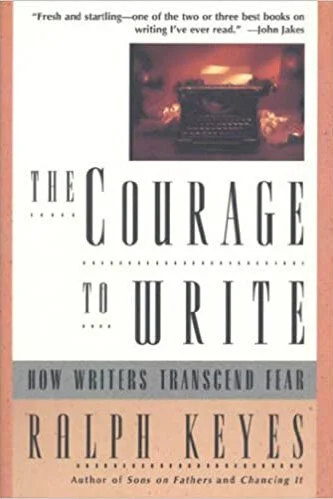


































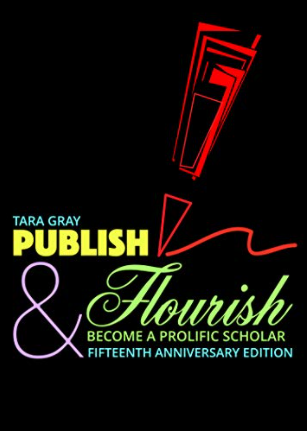

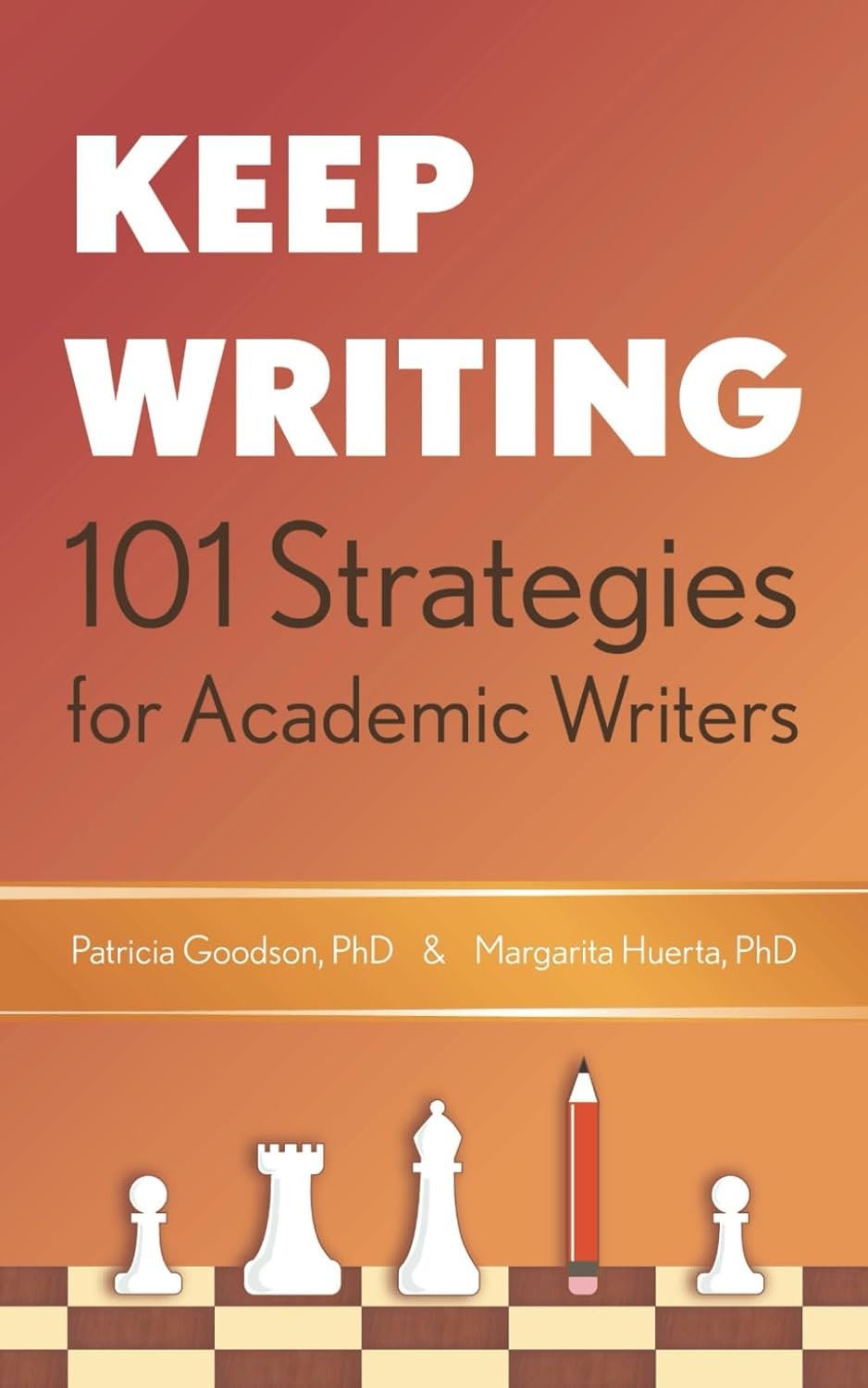

















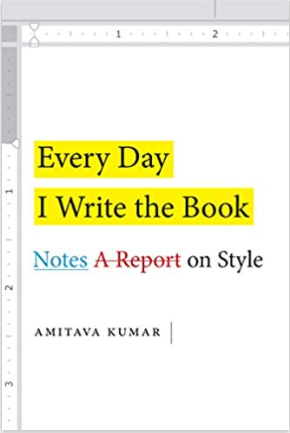


















































































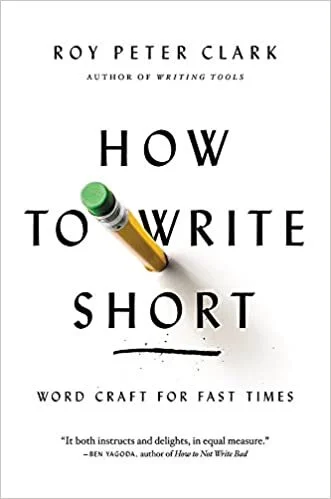

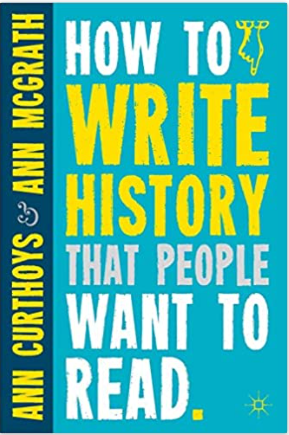










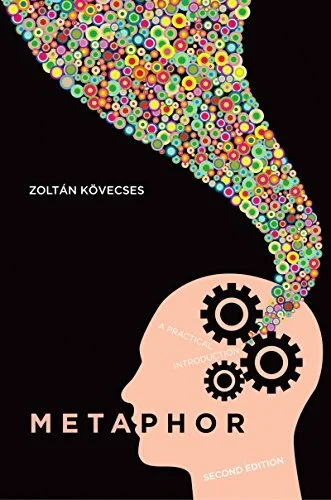






















Buy Now
Helen Sword, Writing with Pleasure
Writing should be a pleasurable challenge, not a painful chore. Writing with Pleasure empowers academic, professional, and creative writers to reframe their negative emotions about writing and reclaim their positive ones.